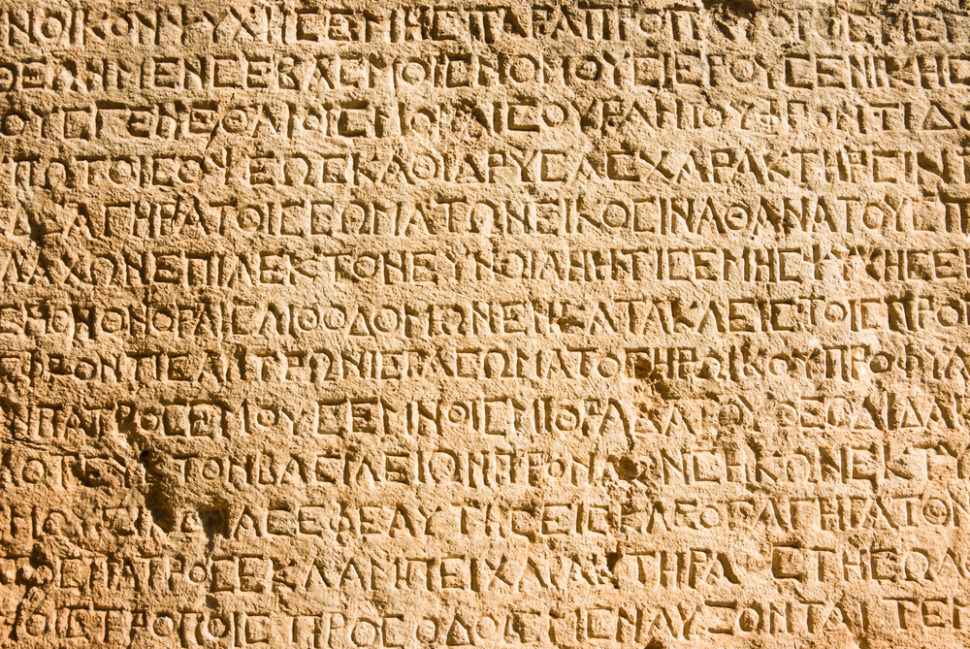DeepMind has developed a new AI system that can help scholars decipher fragmentary ancient Greek texts on broken stone tablets.
Over the past years, scientists have uncovered relics – clay, metal, or stone tablets – with inscriptions that are as old as 2,700 years old. As you can imagine, the letters on these artifacts are invaluable sources for literature, history, and anthropology.
However, the passage of time has not been kind on these tablets, with many of them eroded or damaged. Along with several chips and cracks, an entire piece could be missing, compromising many symbols at the same time.
Sometimes, the symbols were easy to fill. This is especially true when scholars that are proficient in a language have to guess a few missing characters.
But, what happens when a dead language inscription is missing more than a few letters? Well, that’s where an AI algorithm comes in.
Yannis Assael at DeepMind and his colleagues trained a neural network to decipher characters from Greek texts on artifacts. The AI algorithm can guess the missing words on the surface of stone, metal, and ceramics that are as old as 1500 to 2600 years.
Developing An AI System to Decipher Ancient Greek Texts
Assael and his team trained an AI system, called Pythia, to recognize patterns in 35,000 relics which contain over 3 million words. Aside from picking up on contexts, Pythia can also read grammar as well as the shape and layout of inscriptions.
How does it work?
First, the scientists would present an inscription with missing information. Then the AI system would read through it and provide 20 different suggestions that could fill the gap.
Finally, scholars that are familiar with ancient Greek texts would use their judgment to select the best fit.
In a test, Pythia proved to be more efficient and accurate than humans at deciphering the ancient language. Human experts made 30 percent more mistakes than the AI system and took 2 hours to get through 50 inscriptions.
Pythia, on the other hand, completed the entire 2,949 damaged inscriptions within seconds.
As impressive as the AI system is, experts admit that human effort is still necessary to put the pieces together.
In a statement to the press, Phillipa Steele at the University of Cambridge said:
“It looks to me as though the highest success rates would be achieved when… we are just missing small parts of a long text, or when there are plenty of similar parallels for a newly discovered fragmentary text.”



















Comments (0)
Most Recent